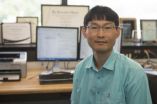(Press-News.org) A new e-memo for the boss: Online breaks at work can refresh workers and boost productivity. Early findings from a University of Cincinnati study will be presented on Aug. 5, at the 74th annual meeting of the Academy of Management in Philadelphia.
The study led by Sung Doo Kim, a doctoral candidate in the Carl H. Lindner College of Business, opens a rare avenue of research into coping with technology-induced distractions in our contemporary society.
Previous research has focused on breaks during off-job hours such as evening, weekend and vacation periods, or on traditional "offline" breaks taken during working hours, such as lunch or coffee breaks. Given the prevalence of online work breaks, the UC study examined this phenomenon in depth, utilizing extensive one-on-one interviews about online breaks with 33 professionals from a variety of industries and occupations. The researchers examined several factors including:
Triggers that prompt online work breaks
Conditions that lead to taking an online break rather than an offline break
Different online break activities
Consequences of online work breaks
Triggers of Online Work Breaks
Kim says workers engaged in online work breaks when they reported a high need for recovery (feeling frazzled from an intense work period, recovering from a reported significant loss of physical or emotional energy). Triggers also included breaking monotony or boredom, checking on demands at home and other personal demands, or emotional work-related events that triggered anger or frustration.
Conditions that Lead to taking an Online Versus Offline Break
Workers whose jobs required extensive computer time or sitting at a desk for prolonged periods were less likely to find online breaks rejuvenating, versus jobs that required a good deal of physical activity or a lot of face-to-face interaction, prompting employees to decompress with some "alone time" online.
Organizational polices also affected the tendency to take online breaks, as some of the employees reported that their workplace had strict policies on the personal use of workplace computers. Kim adds that older workers who had spent years in the workplace previous to the birth of the Internet frowned on online breaks, stating that they were being "paid to work." So, personal values also played a factor in taking online breaks.
Online Break Activities
The reported online activities were categorized into two types: pleasure-seeking and non-work-related duties and responsibilities. The former includes listening to music, reading entertaining articles and checking the sports scores while the latter includes checking in with family members, paying bills and doing school work. Many activities reported, however, were not clearly delineated between the two types, indicating the multipurpose fuzzy nature of online breaks.
Consequences of Online Work Breaks
The researchers outlined three consequences of online work breaks: momentary recovery, learning and satisfaction. First, the workers took online breaks as a quick chance to unwind. "Employees reported benefits on going online to balance their work and personal responsibilities, such as checking on their children," says Kim. "After reassuring themselves about their children, they were better able to focus on their work." Kim adds that people going online for industry news or research felt that they were benefitting themselves in their careers. He says that employees who took online breaks also reported greater levels of satisfaction at work, perhaps because of the freedom to be able to occasionally check in on their personal life. The researchers add that if taken in an undisciplined manner, online breaks could turn into cyberloafing, resulting in the excessive loss of time and productivity.
Demographics
Sixty-two percent of the participants were female and 38 percent were male; 38 percent were married and 50 percent of the respondents had children. The majority of the respondents had an average 8.6 years of working experience. The respondents included 14 health care workers and 19 full-time working MBA students. The MBA sample involved workers in banking, education, media and nonprofits.
New Avenue of Research
"There's little research about whether workers take online or offline breaks in distinct ways, therefore, this exploratory study fills an important gap in that research by providing evidence into what motivates online or offline work breaks," says Kim.
The study suggests that managers consider organizational policies to tap into the positive potential of online work breaks but also establish policies encouraging responsible behavior, such as providing limits on the time spent on online breaks, or holding training on effective strategies that bring benefits from online breaks.
Kim says future research will involve a much wider survey as well as examine how working in different industries could affect the choice and effectiveness of taking online breaks.
INFORMATION:
Contributing authors on the study are Daniele Bologna, a UC doctoral student in psychology; Stacie Furst-Holloway, a UC associate professor of psychology; Elaine Hollensbe, a UC associate professor of management; Suzanne Masterson, a UC associate professor of management and doctoral program director; and Therese Sprinkle, assistant professor, Department of Health Care Management and Organizational Leadership at Quinnipiac University.
Funding for the research was supported by a grant from the Society for Human Resource Management (SHRM) Foundation.
Attention, bosses: web-surfing at work has its benefits
2014-08-04
ELSE PRESS RELEASES FROM THIS DATE:
Fruit flies going high-tech: How touchscreen technology helps to understand eating habits
2014-08-04
A new study reveals surprising similarities between the way mammals and flies eat. What and how we eat is a crucial determinant of health and wellbeing. Model organisms such as fruit flies have provided crucial insights into how our brain decides what and how much to eat. But until now it was not clear how similar eating was in fruit flies and mammals (vertebrates).
In a paper published today (Itskov et. al 2014) in the scientific journal Nature Communications, scientists from the Champalimaud Neuroscience Programme, Lisbon, Portugal, in collaboration with the University ...
Nanoscale details of electrochemical reactions in electric vehicle battery materials
2014-08-04
UPTON, NY-Using a new method to track the electrochemical reactions in a common electric vehicle battery material under operating conditions, scientists at the U.S. Department of Energy's Brookhaven National Laboratory have revealed new insight into why fast charging inhibits this material's performance. The study also provides the first direct experimental evidence to support a particular model of the electrochemical reaction. The results, published August 4, 2014, in Nature Communications, could provide guidance to inform battery makers' efforts to optimize materials ...
Eating resistant starch may help reduce red meat-related colorectal cancer risk
2014-08-04
PHILADELPHIA — Consumption of a type of starch that acts like fiber may help reduce colorectal cancer risk associated with a high red meat diet, according to a study published in Cancer Prevention Research, a journal of the American Association for Cancer Research.
"Red meat and resistant starch have opposite effects on the colorectal cancer-promoting miRNAs, the miR-17-92 cluster," said Karen J. Humphreys, PhD, a research associate at the Flinders Center for Innovation in Cancer at Flinders University in Adelaide, Australia. "This finding supports consumption of resistant ...
Video-game playing for less than an hour a day is linked with better-adjusted children
2014-08-04
A new study suggests video game-playing for less than an hour a day is linked with better-adjusted children and teenagers. The research, carried out by Oxford University, found that young people who indulged in a little video game-playing were associated with being better adjusted than those who had never played or those who were on video games for three hours or more. The study finds no positive or negative effects for young people who played 'moderately' between one to three hours a day. However, the study, published in the journal, Pediatrics, suggests that the influence ...
WSU researchers see violent era in ancient Southwest
2014-08-04
PULLMAN, Wash.—It's a given that, in numbers terms, the 20th Century was the most violent in history, with civil war, purges and two World Wars killing as many as 200 million people.
But on a per-capita basis, Washington State University archaeologist Tim Kohler has documented a particularly bloody period more than eight centuries ago on what is now American soil. Between 1140 and 1180, in the central Mesa Verde of southwest Colorado, four relatively peaceful centuries of pueblo living devolved into several decades of violence.
Writing in the journal American Antiquity, ...
Kangaroos win when Aborigines hunt with fire
2014-08-04
SALT LAKE CITY, Aug. 4, 2014 – Australia's Aboriginal Martu people hunt kangaroos and set small grass fires to catch lizards, as they have for at least 2,000 years. A University of Utah researcher found such man-made disruption boosts kangaroo populations – showing how co-evolution helped marsupials and made Aborigines into unintentional conservationists.
"We have uncovered a framework that allows us to predict when human subsistence practices might be detrimental to the environment and when they might be beneficial," says Brian Codding, an assistant professor of anthropology.
"When ...
New trick for 'old' drug brings hope for pancreatic cancer patients
2014-08-04
Cancer Research UK scientists have found a new use for an old drug by showing that it shrinks a particular type of pancreatic cancer tumour and stops it spreading, according to research published in Gut*.
"It's a crucial step forward in developing new treatments for this devastating disease..." - Dr Jennifer Morton, study author
The scientists, at the Cancer Research UK Beatson Institute and the University of Glasgow, treated mice with pancreatic cancers caused by known genetic faults with the drug rapamycin**.
Previous clinical trials did not find this drug to be ...
Primary care telephone triage does not save money or reduce practice workload
2014-08-04
Demand for general practice appointments is rising rapidly, and in an attempt to deal with this, many practices have introduced systems of telephone triage. Patients are phoned by a doctor or nurse who either manages the problem on the phone, or agrees with the patient whether and how urgently they need to be seen.
A new large study, published in The Lancet on 4 August 2014 and funded by the UK National Institute for Health Research (NIHR), has investigated the potential value of telephone triage for patients and for the NHS. It concluded that patients who receive a telephone ...
Tumor suppressor mutations alone don't explain deadly cancer
2014-08-03
Although mutations in a gene dubbed "the guardian of the genome" are widely recognized as being associated with more aggressive forms of cancer, researchers at the University of California, San Diego School of Medicine have found evidence suggesting that the deleterious health effects of the mutated gene may in large part be due to other genetic abnormalities, at least in squamous cell head and neck cancers.
The study, published online August 3 in the journal Nature Genetics, shows that high mortality rates among head and neck cancer patients tend to occur only when mutations ...
Atlantic warming turbocharges Pacific trade winds
2014-08-03
New research has found rapid warming of the Atlantic Ocean, likely caused by global warming, has turbocharged Pacific Equatorial trade winds. Currently the winds are at a level never before seen on observed records, which extend back to the 1860s.
The increase in these winds has caused eastern tropical Pacific cooling, amplified the Californian drought, accelerated sea level rise three times faster than the global average in the Western Pacific and has slowed the rise of global average surface temperatures since 2001.
It may even be responsible for making El Nino events ...


